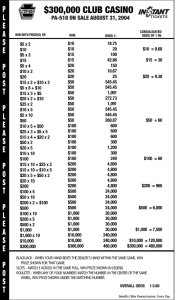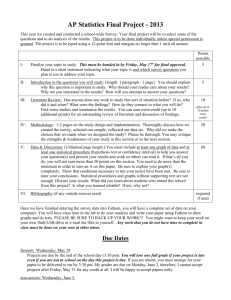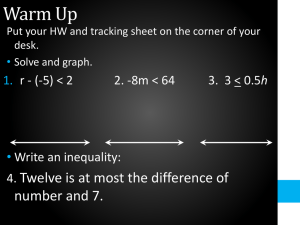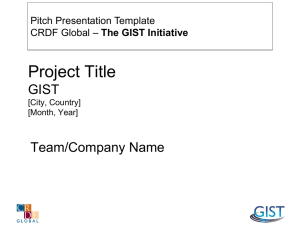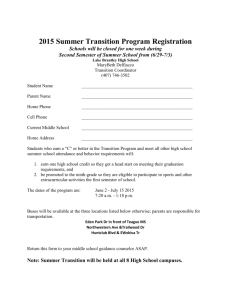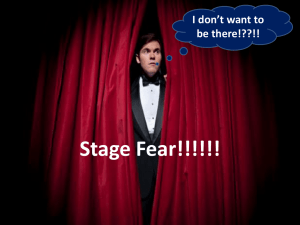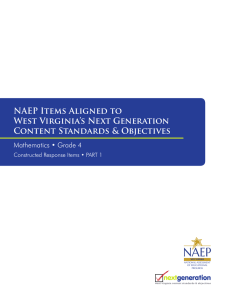confusing verbs - mrescribanoeoi
advertisement
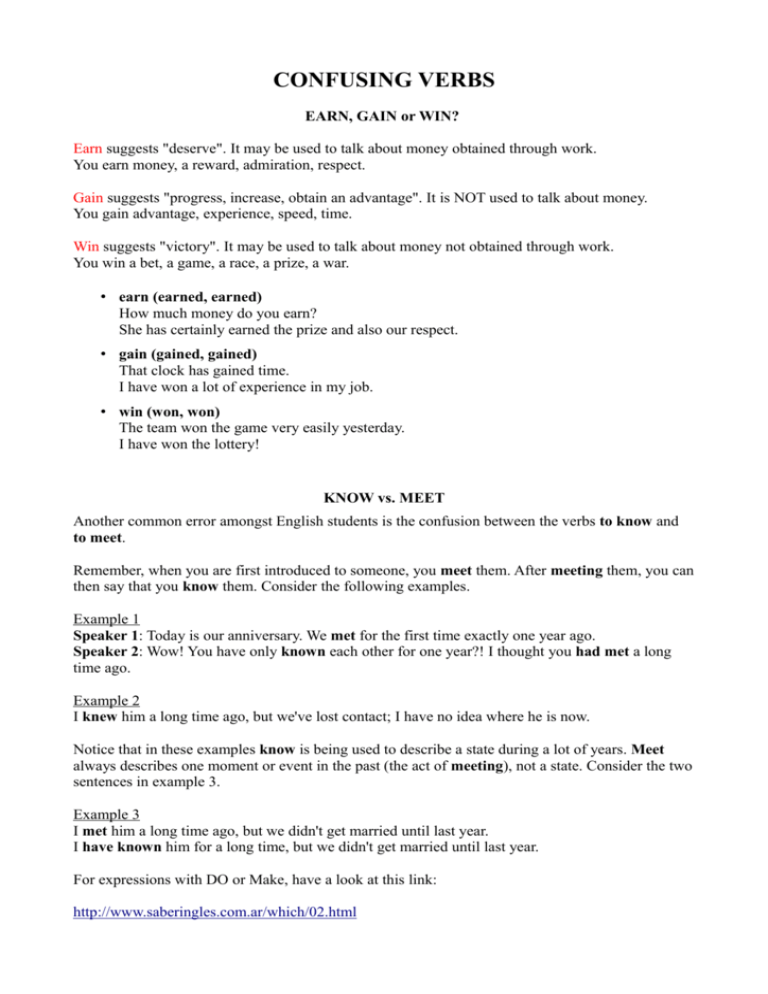
CONFUSING VERBS EARN, GAIN or WIN? Earn suggests "deserve". It may be used to talk about money obtained through work. You earn money, a reward, admiration, respect. Gain suggests "progress, increase, obtain an advantage". It is NOT used to talk about money. You gain advantage, experience, speed, time. Win suggests "victory". It may be used to talk about money not obtained through work. You win a bet, a game, a race, a prize, a war. • earn (earned, earned) How much money do you earn? She has certainly earned the prize and also our respect. • gain (gained, gained) That clock has gained time. I have won a lot of experience in my job. • win (won, won) The team won the game very easily yesterday. I have won the lottery! KNOW vs. MEET Another common error amongst English students is the confusion between the verbs to know and to meet. Remember, when you are first introduced to someone, you meet them. After meeting them, you can then say that you know them. Consider the following examples. Example 1 Speaker 1: Today is our anniversary. We met for the first time exactly one year ago. Speaker 2: Wow! You have only known each other for one year?! I thought you had met a long time ago. Example 2 I knew him a long time ago, but we've lost contact; I have no idea where he is now. Notice that in these examples know is being used to describe a state during a lot of years. Meet always describes one moment or event in the past (the act of meeting), not a state. Consider the two sentences in example 3. Example 3 I met him a long time ago, but we didn't get married until last year. I have known him for a long time, but we didn't get married until last year. For expressions with DO or Make, have a look at this link: http://www.saberingles.com.ar/which/02.html WAIT, EXPECT OR HOPE? Although they are translated the same way in Spanish, these verbs have different meanings: Wait means that you do something until something else happens. Expect means that you think that something will happen. Hope means that you want something to happen. • wait I'm waiting for the bus. Wait for me! I will wait until she comes back. • expect I expect to arrive in a week (you think you will). We didn't expect her to stay so long. They expect to finish the work next month. • hope I hope to arrive in a week (you are not certain but you want to). I hope everything goes well. I hope you come. LOOK AT VS WATCH When you look at someone or something you are interested in appearance. Generally we look at things that are static. For example: Look at these photos, they're really good. I went to the art gallery to look at the exhibition of paintings. Watch is a verb. When you watch someone or something you are interested in what happens. Generally we watch things that move or change state. For example: I watch TV every night. The security guard watched the shoplifter steal the clock. !If I say to you "Look at him!" I mean for you to check out his appearance. But, if I say to you "Watch him!" I mean it as a warning. SEE vs WATCH To see means to be aware of what is around you by using your eyes. For example: "I can see the smoke from here." To watch means to deliberately look at something for a period of time, especially something that is changing or moving. For example: "I watched the cricket." !Note - We watch things that move, such as TV, a film, sport. We look at static things, such as a photograph, a painting, the stars. Have a look at this video: http://www.engvid.com/english-vocabulary-look-see-watch/ To learn more differences, please, check these links: http://www.learnenglish.de/mistakes/CommonMistakes.htm http://www.saberingles.com.ar/which/index.html
